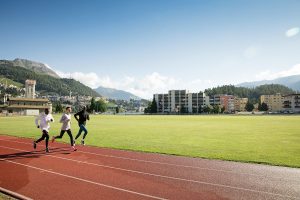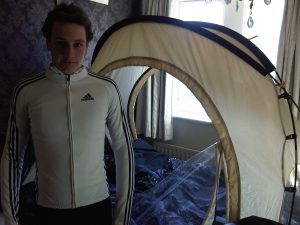With travel restrictions putting paid to the best laid altitude training plans, Lead Performance Specialist James takes a look at what altitude training looks like in the COVID era. You can find out more about how The Altitude Centre can support your training at this time, and our solutions for altitude training camps in the UK on our post here.
For endurance athletes, altitude training has for a long time formed the backbone of their programs. Dr Joe Vigil, US Olympic running coach for the 2008 games famously quoted that 1968, 95% of all Olympic and World Championship medals from the 800 through the Marathon were won by athletes who lived or trained at altitude. A 2018 study on elite athletes’ perceptions of altitude training showed that 98% of athletes, and 95% of coaches had used altitude/hypoxic training, with 75% saying that it was a very important factor in training. One need only look to the successes of elite athletics programs like the one run by British Athletics, which sees athletes travel to Font Romeau or Sankt Mortiz several times a year, or Tinman Elite who spend considerable time in Boulder, CO, to realise the importance of altitude camps in athletes’ preparation. And that’s before we consider how the majority of the world’s elite cyclists descend on Tenerife and the Sierra Nevada for pre-season camps.

Now, with international travel bans in place across the globe, athletes have been forced to train domestically. That’s fine if you’re lucky enough to live in Boulder, but only 6% of the world’s population lives above 1600 m, and over 50% live below 100 m, meaning the majority of athletes have had no access to terrestrial altitude during the COVID era.
At the start of the pandemic this wasn’t necessarily an issue. There was no prospect of international or major competition, so lack of access to altitude wasn’t most athlete’s primary concern. However, the return of major world games is immanent. The Tokyo 2020 organising committee continue to stress that The Olympics will go ahead this year, which has necessitated a ‘business as usual’ approach to training for many elite athletes. Of course this time, however, usual doesn’t allow travel to altitude. So what does altitude training look like in the COVID era?
The Rise of the Domestic ‘Altitude’ Camp
National governing bodies, sports teams, and individual athletes have been quick to adapt to the situation. Many have been setting up domestic training camps, to gather their athletes, coaches and sport science support staff in one place, to reap the benefits of being in the team environment. To replicate the physiological demand of being at altitude, they are also incorporating our simulated altitude training equipment. While there are a number of moving parts, and specific considerations for the best way to execute a domestic altitude training camp, we have seen two main approaches used; either sleep or exercise at simulated altitude.
Sleep High

Some would consider sleeping at altitude, to be the gold standard of altitude training. This method sees the athlete sleep in an altitude tent, allowing them to accumulate a significant amount of time at altitude while asleep, supplemented by time spent in the tent during the day. Meanwhile, they are able to train at sea level, which may be particularly useful during phases of training where theabsolute intensity of training should be maintained. It’s an approach which has been favoured by endurance athletes for the last couple of decades now, after the first research study investigating the sleep high method in 1997. No doubt, the compelling research undertaken since, and it’s use by Tour de France winners, World Major Marathon champions, and Olympic medallists, have seen it become a staple of the endurance athlete’s training toolbox. However, its use has also branched out, and we’ve seen the sleep high approach taken on with great success by world champion heavyweight boxers and Premier League footballers alike. For any sport with some endurance component to it, sleeping high may well be relevant.
Train High
For other athletes, or in certain phases of training, actually undertaking training sessions at altitude may be more appropriate.
We have seen some groups use the train high approach alone, while others like to use it alongside sleeping high. Again, the right solution depends on the goals of the camp. Traditionally, training high has been used by endurance athletes, and for good reason. There is good research to support the benefits of undertaking just 2 lactate threshold sessions each week at altitude. However, the method has become particularly popular to help manage the physical workload of athletes, making it useful for those with very high training volumes, or injured athletes who can’t hit their usual training volume. The principle here being that training high allows them to maintain or even improve fitness even with reduced training volume. It’s my prediction that we’ll continue to see growth in the use of altitude as a load management strategy across a range of sports. Similarly, a recent explosion in research in the area has also seen training high become the favoured approach for repeated sprint training in team and racket sports. We’ve written about this extensively before, and for good reason. The improvements in repeat sprint ability in a very short space of time are highly impressive, and is clearly a draw for those NGBs who have bought into train high altitude camps ahead of major competition in this period.
Training in 2020…
…back in 2009
We always like to be leading the race
#LionsRugby
Posted by Official Lions Rugby on Sunday, 13 December 2020
At The Altitude Centre, we are able to offer a range of technical solutions and performance & sport science support options to cater for any training camp needs. To find out more, please get in touch today.
